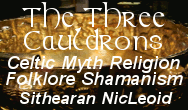Pagan Paths
Out of the deeps rises the mysterious lotus. Stop in for refreshment, heka, and reflections from the sacred waters of ancient Egypt.
Unabashed Mystic
 In the early days of Egyptology scholars took the attitude that a transcendent experience was only expected after death in ancient Egypt. This fit well with the predominant Judeo-Christian background of virtually all of them, as well as the desire to demonstrate their new profession could be as scientific as any others. But the record is plain as day that mystery schools flourished in at least the Late period, influencing other mystery cults all around the Mediterranean. Contemporary Egyptologist Jan Assman even goes so far as to assert that ancient Egyptians could not have developed their own mysticism because that it would not have been based on lived real-life experience. Really?!
In the early days of Egyptology scholars took the attitude that a transcendent experience was only expected after death in ancient Egypt. This fit well with the predominant Judeo-Christian background of virtually all of them, as well as the desire to demonstrate their new profession could be as scientific as any others. But the record is plain as day that mystery schools flourished in at least the Late period, influencing other mystery cults all around the Mediterranean. Contemporary Egyptologist Jan Assman even goes so far as to assert that ancient Egyptians could not have developed their own mysticism because that it would not have been based on lived real-life experience. Really?!
I do love Assman’s writing, but as an unabashed mystic myself I am all too aware that close encounters with another kind of reality, one we often call “god” or “the divine”, happen all the time. It seems far more likely that Egyptians encountered this numinous, liminal reality enough times that they began to form, first mythologies, then theologies, around it.
 What I find so intriguing about Egyptian myth is how it is used to shape one’s personal narrative. By experiencing the mysteries of Osiris, for example, one can prepare for inevitable mortality. But at the same time the initiate uncovers layers of his own psyche, depths of meaning about the here and now.
What I find so intriguing about Egyptian myth is how it is used to shape one’s personal narrative. By experiencing the mysteries of Osiris, for example, one can prepare for inevitable mortality. But at the same time the initiate uncovers layers of his own psyche, depths of meaning about the here and now.
Whatever route was taken through the land of death during the mysteries, we know that the initiates returned transformed, speaking of their experience as changing their lives forever. Most importantly, if we are to view the initiate as temporarily playing the part of the god, he or she returns to the physical world and daily life. So transcendence is something yoked inextricably with physicality; it and is not the ultimate goal that it became for the Greeks.
I remain an unabashed mystic, open to both my body and my soul, my senses and my intellect. “Whether you are in the sky with Ra, or whether you are in Earth . . . Arise, rise up . . . “ (Ramesside Inscriptions, Historical and Biographical, Kitchen, 1975-1990)
Comments
-
Please login first in order for you to submit comments




















Hi, Holli...couldn't agree more. I rather like Jeremy Nadler's take on it in Temple of the Cosmos.